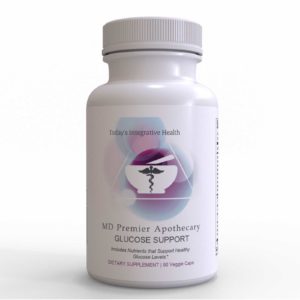Under normal conditions, your brain is fueled mainly by glucose for energy. With that information, it’s not a surprise that dysregulation in our blood sugar levels has been linked to fatigue, reduced alertness, and decreased energy levels.
Knowing this can make it easier to manage our blood sugar levels and help to directly support our energy levels.
For many people, energy is linked to their use of stimulants, including coffee or energy drinks. People are aware that if they get too hungry, they notice lower energy levels. Aside from rest and sleep, low energy can be linked to our blood sugar levels, which are linked to when, how, and what we eat.
Blood Sugar – Manage Dips and Spikes to Optimize Energy Levels
There is a slight irony to energy levels, and the more “energy” we have in our bodies in the form of glucose, the less we may actually feel energized. One study where glucose levels were quickly elevated to around 300 mg/dL over 20 minutes, the participants reported a huge decrease in “energetic arousal” in addition to a worsening of inattention and memory function. They also reported slower information processing while experiencing increased anxiety or sadness.
That huge spike in blood sugar appeared to lead directly to poorer cognitive performance and reduced energy levels.
If you’ve noticed that after you eat Thanksgiving dinner you experience a “post-meal slump” or a period where you feel like you need to take a nap, you can probably link that to a glucose spike. Not only do spikes cause decreased energy and increased fatigue, but dips do as well.
A study found that individuals with low glucose levels overnight (between 42 and 59 mg/dL) reported low energy, shorter period of time to becoming fatigued the next day, and a general sense of decreased well-being, compared to individuals with overnight glucose levels between 90 and 216 mg/dL.
By managing dips and spikes, you can generally help to control your energy levels.
Blood Sugar – Control Your Glucose Levels to Get More Energy
Sometimes when you’re seeking ways to increase your energy levels, you may need a psychological shift on how you look at food. Drinking more coffee or energy drinks may be a bandaid that only masks our ability to recognize a chaotic metabolism.
To get more energy, you may have to adopt some new lifestyle habits in order to maximize your metabolic fitness. Here are some things you can do to help control your glucose levels in order to maximize your energy:
- Eat less carbs per meal. Everybody is different, and we all respond to carbohydrates uniquely. Some people may notice they are more sensitive to carbs, but others may not.
- Rotate your carbohydrate source per meal. For example, one person’s glucose may spike after eating a banana while another person may experience minimal effects.
- Explore other metabolic health strategies such as exercising and sleep optimization to control glucose levels.
You may end up needing a metabolic tune-up of consistent, wiser lifestyle habits and a diet based on your own unique glucose data. The only way you can really test this is to try different things and note your results.
As you start to figure this out, you may notice more stable glucose levels which can lead to a reduction in fatigue and an increase in energy levels.
Work With a Doctor That Can Help You
If you feel lost with all of this, working with Dr. Leo may be a wise choice. His knowledge can help guide you to make decisions leading to a healthier lifestyle. We are located at 6321 Executive Blvd, Rockville, MD 20852, in the Executive office park. Call us today to schedule your first appointment. You’ll be glad you did!
Related Products
-
 MDPA Adrenal Stress Formula (120 Capsules)$48.00 — available on subscription
MDPA Adrenal Stress Formula (120 Capsules)$48.00 — available on subscription -
 MDPA K2-45 (60 Capsules)$23.00 — available on subscription
MDPA K2-45 (60 Capsules)$23.00 — available on subscription -
 MDPA Glucose Support (90 Capsules)$55.00 — available on subscription
MDPA Glucose Support (90 Capsules)$55.00 — available on subscription













